Horrific video exposes the drug-fuelled violence plaguing our hospitals
Shocking video has captured the horrific violence helpless hospital staff are forced to put up with while trying to help raging drug-affected patients. And staff say the violence unfolding in Victoria’s hospital emergency departments is becoming commonplace.
VIC News
Don't miss out on the headlines from VIC News. Followed categories will be added to My News.
More than 90 per cent of drug-fuelled violence towards hospital workers is due to ice, startling new research reveals.
The Royal Melbourne Hospital study shows the hidden extent of methamphetamine violence on our doctors and nurses working in its emergency department.
Drugs had been taken in 40 per cent of attacks and threatening incident s where security guards had to be called.
And of those, 92 per cent were specifically on the deadly drug ice. The numbers were obtained by taking saliva swab tests from the perpetrators.
Horrifying video from inside the RMH emergency department shows rampaging patients throwing chairs, hitting staff with computer monitors, punching nurses and attacking them on the ground or spitting in their faces.
WATCH THE HORRIFYING VIDEO ABOVE
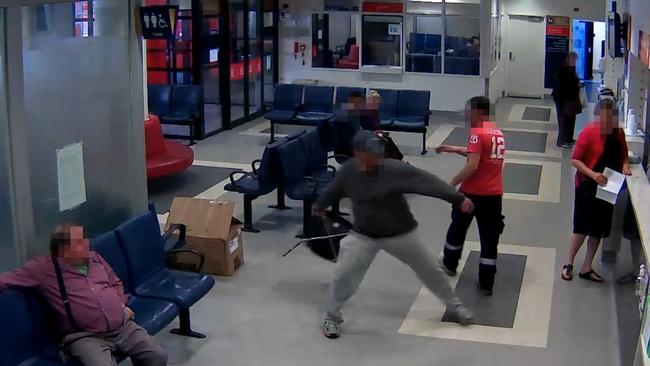
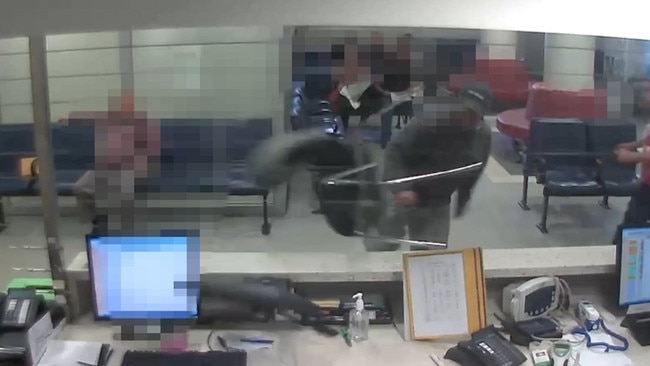
While the rise in hospital violence has been the focus of attention in recent years, RMH executive director of strategy, George Braitberg, said even emergency department staff were shocked at how many attacks were fuelled by drugs.
“They are huge figures,” Prof Braitberg said.
“It not only affects the patients themselves, but the patients around them, the staff, the equipment. Having chairs thrown through glass barriers and all those sorts of things becomes very disruptive but, over the years, it has become business as usual.”
In an extraordinary move, doctors alarmed at the situation in Melbourne’s emergency departments sought ethical approval to collect saliva samples without needing consent from violent patients, including those who were unconscious or had been chemically or physically restrained. Over seven months, RMH emergency department staff drug tested the most aggressive “code grey” cases — the code used to receive security support for a violent incident.
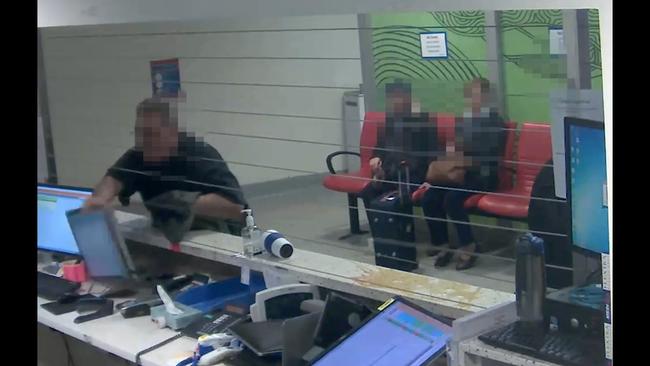
Of the 229 samples taken from August 2016 to March 2017, 85 were positive for methamphetamine.
Another 16 code grey patients were positive for opiates including heroin, seven had used cannabis and six had taken cocaine. Eighteen had used more than one drug.
But despite drug use being involved in four out of 10 incidents, RMH director of emergency research Jonathon Knott said only 22 per cent of the patients said they had used illicit substances in the previous 24 hours.
Assoc Prof Knott said that given methamphetamine-induced psychosis was indistinguishable from some acute mental health conditions, knowing why a person was acting out could improve their treatment as well as safety.
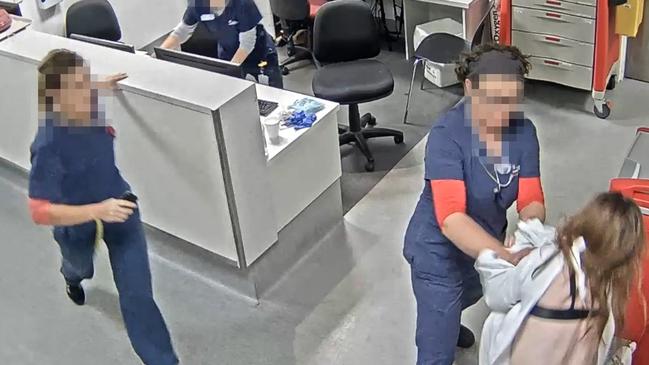
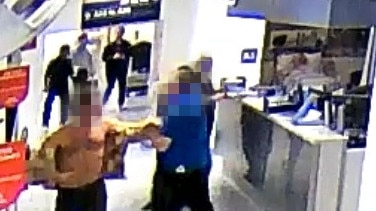
“We are looking at the very pointy end of the population and we are seeing this group of people who are largely unmanageable due to the effects of drugs — and the vast majority are amphetamines,” he said.
“We knew particular amphetamines would start to be a feature among this particular really agitated, disturbed part of the population. I thought we would hit about 15-20 per cent, so the 40 per cent hit rate was very high.
“Amphetamine, particularly ice, is a real problem because people get psychotic on it, they get sleep withdrawal and their behaviour is really destructive.”
THREATS, VIOLENCE A DAILY FEAR
When nurse Meaghan McKernan goes to work each day she knows she or one of her colleagues will most likely be physically attacked, threatened, spat on, abused or told they will be raped.
Raging patients throwing chairs, computer screens and their fists in Victoria’s hospital emergency departments have become all too common.
There were 5882 occupational violence incidents reported last year across Melbourne’s eight major health networks alone.
Uncontrolled aggression is so frequent there are too many incidents for Ms McKernan to pinpoint standout situations she has been subjected to in the past five years at Royal Melbourne Hospital’s emergency department. Rather, the 26-year-old said it was the constant nature of threats that had the greatest impact.
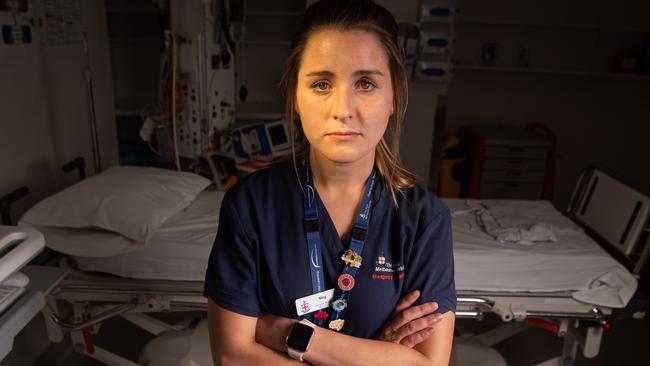
“I have patients tell me they will wait for me outside,” she said.
“I have had my hands crushed by patients — while you are assessing them, they take your hands and crush them.
“I have been threatened to be raped a lot of times on the way to my car, my friends have been put off work for a week at a time by a physical assault.
“You have that jump in heart rate, you have sweaty hands, that shaking voice. Over time I have learned to control that, but even just somebody raising their voice and walking towards you can have an impact.”
Working in one of Victoria’s busiest emergency departments, Ms McKernan said at least one nurse will face a safety issue every day.
MORE NEWS:
FAMILY SHATTERED AFTER DEAD OF GIRL IN HOT CAR
DESPERATE SEARCH FOR TEEN’S KILLERS
NEW WAY GYMS ARE RIPPING YOU OFF
Ms McKernan said she was one of the lucky ones because large metropolitan hospitals had around-the-clock security teams, unlike smaller regional hospitals.
Knowing that four out of 10 of the aggressive patients she faces are likely to be on ice may make little practical difference in the front line, with Ms McKernan saying she has a moral responsibility to treat anyone, no matter how hard they might make it.
“A constant theme in ED is de-escalation,” she said. “Trying to safely treat them while keeping yourself safe, that is the biggest challenge.”
Originally published as Horrific video exposes the drug-fuelled violence plaguing our hospitals


